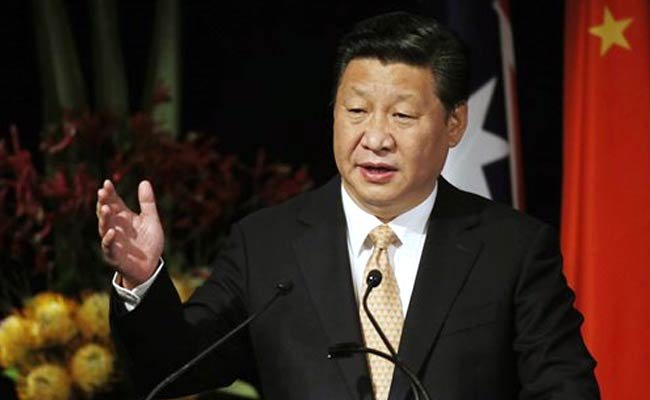
BEIJING: The United States has planned to sell Taiwan $1.42 billion in arms, the first such sale under the administration of Donald Trump and a move sure to anger China, whose help the president has been seeking to rein in North Korea.
U.S. State Department spokeswoman Heather Nauert told reporters the administration had told Congress of the seven proposed sales on Thursday.
"It's now valued about $1.42 billion," she said.
China's embassy to the United States urged Washington to immediately revoke its "wrong decision" and halt $1.42 billion worth of planned arms sales to Taiwan.
"The Chinese government and Chinese people have every right to be outraged," the embassy said in a statement release late on Thursday, adding that the sale sends a very wrong message to "Taiwan independence" forces.
The United States is the sole arms supplier to Taiwan, which China deems its own. It has never renounced the use of force to bring the self-ruled island under its control.
US State Department spokeswoman Heather Nauert on Thursday told reporters the administration had told Congress of seven proposed sales, the first such sale under the administration of Donald Trump.
Strong Support
In a strong sign of congressional support, the Republican chairman of the House Foreign Affairs Committee welcomed what he called the "long-overdue" arms sale.
"Sales of defensive weapons, based on Taiwan's needs, are a key provision of our commitments as laid out by the Taiwan Relations Act and the Six Assurances," said Rep. Ed Royce, referring to legislation and informal guidelines that steer U.S. relations with Taiwan.
U.S. officials said in March the administration was crafting a big arms sale to Taiwan, but such talk died down as Trump sought to persuade Beijing to do more to rein in North Korea's nuclear and missile programs, an increasing threat to the United States.
Earlier on Thursday, China responded angrily and said it had protested to Washington after a U.S. Senate committee approved a bill calling for the resumption of port visits to Taiwan by the U.S. Navy for the first time since the United States adopted a one-China policy in 1979.
The bill also directs the Pentagon to help Taiwan develop an indigenous undersea warfare program and recommends strengthened strategic cooperation with Taipei.
China's Foreign Ministry spokesman said the bill was in violation of the principles of U.S.-China relations and called on Washington to halt military drills with and arms sales to Taiwan "to avoid further impairing broadly cooperative China-U.S. relations."
U.S. officials told Reuters this week that Trump - who alarmed Beijing after assuming office by breaking with decades of precedent and talking to Taiwan's president - was becoming increasingly frustrated with China over its inaction on North Korea and trade.
According to the officials, Trump is now considering trade actions against Beijing, despite having heaped praise on Chinese President Xi Jinping after an April summit.
Also on Thursday, Washington stepped up pressure on Beijing by imposing sanctions on two Chinese citizens and a shipping company for helping North Korea's nuclear and missile programs and accusing a Chinese bank of laundering money for Pyongyang.
Trump plans to meet Xi again on the sidelines of the G20 summit in Germany next week, U.S. National Security Adviser H.R. McMaster told reporters.